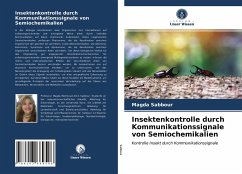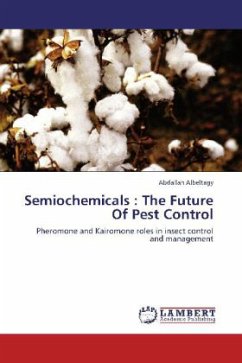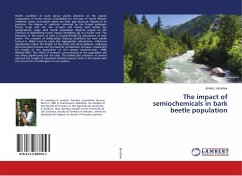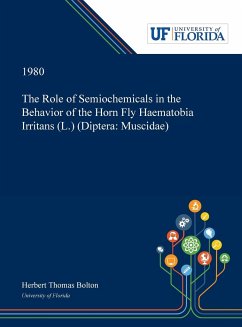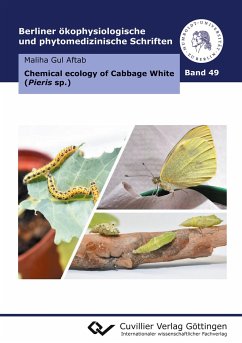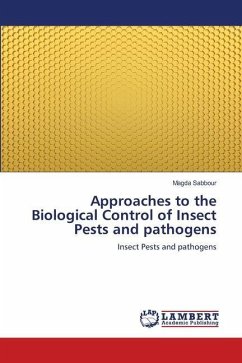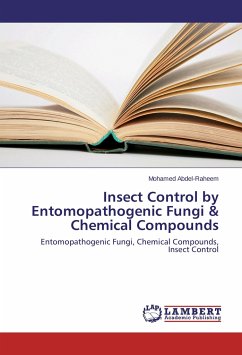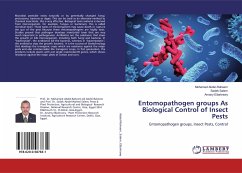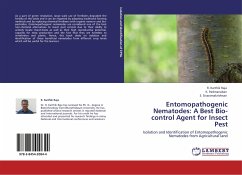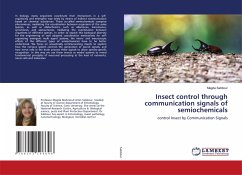
Insect control through communication signals of semiochemicals
control Insect by Communication Signals
Versandkostenfrei!
Versandfertig in 6-10 Tagen
36,99 €
inkl. MwSt.

PAYBACK Punkte
18 °P sammeln!
In biology, many organisms coordinate their interactions in a self-organizing and emergent way solely by means of indirect communication based on chemical substances. These so-called semiochemicals comprise pheromones, mediating the coordination between organisms of the same species, as well as allelochemics, such as allomones, kairomones, synomones, and apneumones, mediating the coordination between organisms of different species. In order to exploit this biological diversity for the engineering of well adapted coordination mechanisms for self-organizing emergent multi agent systems, the micr...
In biology, many organisms coordinate their interactions in a self-organizing and emergent way solely by means of indirect communication based on chemical substances. These so-called semiochemicals comprise pheromones, mediating the coordination between organisms of the same species, as well as allelochemics, such as allomones, kairomones, synomones, and apneumones, mediating the coordination between organisms of different species. In order to exploit this biological diversity for the engineering of well adapted coordination mechanisms for self-organizing emergent multi agent systems, the micro- and macroscopic effects of the different types of semiochemicals have to be better understood. We focus on acoustically communicating insects to explore how the nervous system controls the generation of sound signals, and how nerve cells in the brain process these signals to allow species-specific recognition. In this way we use these insects as model systems to reveal fundamental principles of neuronal processing at the level of networks, nerve cells and molecules.



